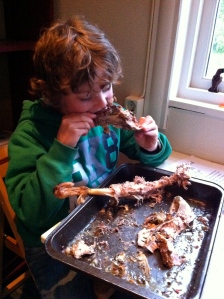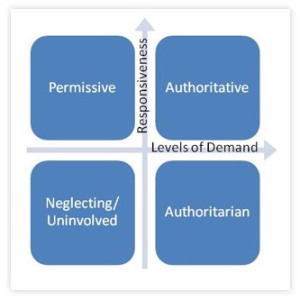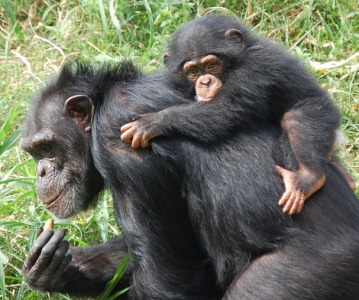“Life affords no greater responsibility, no greater privilege, than the raising of the next generation.”
- C. Everett Koop
 My father was amazing. He used to make me fried livers, onions and kidneys for breakfast and cycle up to school at lunch times with meat pies and red peppers filled with cottage cheese. He ordered Match magazine from England for me and I had an original Le Coq Sportif Chelsea strip with number 9 on the back in 1985. That was Kerry Dixon, my childhood hero. I had a Mongoose factory team BMX to race. My dad never missed a cricket or soccer practice, and was always on the sideline during games. He used to carry my golf clubs on his back and caddy for me all day.
My father was amazing. He used to make me fried livers, onions and kidneys for breakfast and cycle up to school at lunch times with meat pies and red peppers filled with cottage cheese. He ordered Match magazine from England for me and I had an original Le Coq Sportif Chelsea strip with number 9 on the back in 1985. That was Kerry Dixon, my childhood hero. I had a Mongoose factory team BMX to race. My dad never missed a cricket or soccer practice, and was always on the sideline during games. He used to carry my golf clubs on his back and caddy for me all day.
He taught me how to think about history and be politically weary. We moved about a lot, but I always felt like I was the center of his world. He was the social scientist, and the things he didn´t know, like calculus or chemistry, he made sure I got a chance to know, by finding people to come over and tutor me. He let me find my way, led me where he knew, taught me patience, empathy, gratefulness and most of all, how to never let down the most precious thing in life, your child. When he passed away, my grief drew me closer to my will to honor his name by being the best father I could possibly be to my children. It is any parent´s primal instinct.
Parental Responsiveness
Back in the 1960s, clinical and developmental psychologist Diane Baumrind determined 3 basic types of parenting from a study of pre-school children and their parents:
Baumrind, D. (1967). Child care practices anteceding three patterns of preschool behavior. Genetic Psychology Monographs, 75(1), 43-88.
1. Authoritarian (rigid, harsh, demanding/unresponsive)
2. Permissive (soft, overly responsive/undemanding, “spoilt child”)
3. Authoritative (moderate, responsive/demanding in certain circumstances, fair)
Later in 1983 Maccoby and Martin added “Neglectful” or “Uninvolved” (undemanding/unresponsive).
 Authoritative parenting was considered by Dr. Baumrind to be the ideal style. Give the children rules to respect, communicate well, and allow for independence. Punish misdemeanors in a fair way. Show respect for your child and be a role model for them to follow. Ok, fair enough, we have a winner. But wait….
Authoritative parenting was considered by Dr. Baumrind to be the ideal style. Give the children rules to respect, communicate well, and allow for independence. Punish misdemeanors in a fair way. Show respect for your child and be a role model for them to follow. Ok, fair enough, we have a winner. But wait….
What level of responsiveness should we give our children and how demanding should we be?. It seems that these categories are loosely formed on general observations and have been applied to varying degrees of success to studies looking at raising children based upon variants of responsiveness and demand. It is easy to generalize and point to levels of self-esteem and career success and failure to parental roles in childhood. We get the idea that social norms and expectations placed upon us as parents makes us adhere closely to the authoritative model. But how are we conditioned as parents to decide how to raise our kids?. Is it natural to make decisions for our kids based upon what we perceive as being right or wrong?. Can we not foster free-will through compassion, love and sympathy, yet not try to mould our kids into our mirror image?. We all say openly that we want what´s best for our kids, and that they can freely choose their path in life. But hang on:
- I decide what they eat (by buying and cooking the meals)
- I tell them that being outside is a better option than being inside
- I tell them that doing well at school is the most essential thing for a child
- I reflect upon what my father did and apply a lot of those things to my own parenting
Where do we draw the line at deciding when and why they can and cannot make their own choices?. Is stems back to traditions, ideologies and cultural schemas we are conditioned to reproduce as social beings. Now the evolutionary anthropology bit:
Every society has a steadily evolving set of cultural models for rearing children. This is seldom an individualistic task, and the vision and practicalities of this shared wisdom varies from community to community, culture to culture. What is universal however, is the desire to teach children at a young age the dispositions required to fulfill the complex expectations of adulthood. This is commonly referred to as sociocompetitive competency. It is a part of social evolution, that culture, as sets of shared practices, plays a determinate role in shaping the child´s experience and the parent´s role in nurturing them through to adulthood. Whilst the variables to child raising are immense cross-culturally, the overall design is similar. Children are taught through reactions of approval and disapproval to become culturally primed for their role as adults, but also in more abstract ways that can best enable then to tackle the myriad of conflicting interests and social ecology of other human beings.
The H. sapien Parent – evolving through the abstractions
 Paternal investment is rare among mammalian species. In fact, in only 3-5 %. The evolved characteristics of H. sapiens to adapt to functioning best in competitive environments is marked by cultural variability, yet the role as parents has always been focussed on ways to adaptably provide the ecological surrounds for the child to acquire socially competitive skills. In this sense, the biological meets the social. There is an intrinsic link. But how as parents in a world full of conflicting interests, do we guide our children through to these competencies?. What are the evolutionary mechanisms Darwin taught us through his theory of natural selection that provides us with a set of guiding principles that should mould our neolithic parenting existence?. R-E-L-A-X!!!
Paternal investment is rare among mammalian species. In fact, in only 3-5 %. The evolved characteristics of H. sapiens to adapt to functioning best in competitive environments is marked by cultural variability, yet the role as parents has always been focussed on ways to adaptably provide the ecological surrounds for the child to acquire socially competitive skills. In this sense, the biological meets the social. There is an intrinsic link. But how as parents in a world full of conflicting interests, do we guide our children through to these competencies?. What are the evolutionary mechanisms Darwin taught us through his theory of natural selection that provides us with a set of guiding principles that should mould our neolithic parenting existence?. R-E-L-A-X!!!
The long evolution of social dynamics, skipping to the beat of natural selection when we are least aware, has given us an instinctive bond of parental protection with our children that not only ensures their survival and reproductive successes later in life, but stands them in good stead to deal with selection pressures, such as modern diseases of civilization. Remembering that Darwin´s observation of variability being heritable is key to differential survival (natural selection), then our role as parents is crucial, yet complicated, because selection pressures are acting upon physical, behavioral, physiological and cognitive variation. In other words, we should not start stressing about whether or not our parenting skills may effect the number of legs our grandchildren have, because we have been strongly selected to have two, but we should be AWARE of the need to access the optimal biological, physical and social resources that will allow our offspring to thrive in the way we wish
Isn´t this just our primal parental instinct?.
Heck, it should be!. We want our children to be competitive socially (finding a decent partner later in life), biologically healthy (eating natural, not man made food) and physically safe (having a home). We want the factors that can influence this in a positive way to be at the forefront of their lives, and the compounding pressures to be easily cast aside. We see with our mammalian ancestors acting in social ways to ensure protection of the young, of territory and of reproductive success. Chimpanzees fight when needed, make deals with each other, rest a lot and move and eat well. It is in the natural disposition of our ancestors to not only protect our young, but to form bonds of reciprocal altruism that can allow us to survive and to enjoy the journey.
Paleo and parenting
Is it not common sense that we should adopt the ways we are best selected for, and transfer them to all aspects of our lives?. We parent our kids in ways that suit our lifestyles, often to the detriment of the evolutionary model that has been laid out in our modern wake. We need to be aware of the way families operate cross-culturally to distill not only the variables, but to see the commonalities which may provide us with some guiding principles that may of may not need reinforcing to some. Human evolution can be boiled down to competition. Beyond our abilities to survive, come the abstractions that our enlarged neocortex has allowed us to become the sole human species left, but also the distractions that bring natural selection back to the forefront of our social thought. If being a parent is the ultimate path of evolution, then we should try to spend more time doing it, in whatever way we find works, but always with an awareness that our contribution is a legacy that we get just one shot at.
So, what to make of the developmental psychology?. Well, we have a lot to learn from the parental role of our primate ancestors. No, we shouldn´t always behave in a similar manner because we have bills to pay and laws to abide by (but it´s good to be nude as much as possible) but by observing primates with their young, we may be able to sharpen our instincts which are too often hindered by the distractions of modern day life and that abstract brain of ours. Clinical psychologist turned primatologist Harriet J. Smith has spent a lifetime raising and studying apes and monkeys and has contributed enormously to the study of human parental strategies. Observations of note include:
- For all primates, successful parenting is hard work, and certainly not ‘natural´. It requires constant learning, awareness, experience, and of course help. Infant primates need continuous attention.
- As far as single-parenting goes, primates need continuous help as well. The feeling of being isolated and overwhelmed is not an evolved stage we are accustomed to, despite the statistics.
- All primates have been working parents. Despite the fact that modern society demands the juggling act of work and parenting, it is the time spent with your children that is key, and who they spend time with in your absence.
- Good parents are made, not born. Tamarins learn to parent by observing their own parents care for young siblings and by babysitting new members the family. Without this crucial early experience, parenting ability is seriously impaired, and often leads to rejection of offspring.
There are no easy answers to the questions we have as parents, and the doubts and frustrations we have within ourselves or with those around us. It has never been an easy road, and never will be. It isn´t about being perfect, or following the lead of a guidebook, therapist or crazy tv show. My father was a bit of an odd character in many ways, but he gave me time. He eliminated distractions and focussed on being the best dad that he could be. He expressed to me every night that he loved me. He showed balance and awareness and maybe he knew instinctively that he was teaching me how to be a father too. I often reflect upon his legacy when faced with daily paternal tasks myself; “What would my old man have done/said”?. Be patient and “take it easy” usually come first. After that?. Well, figure out what works best. But be there and be loving.
And in the end, it really does all comes down to some good old loving…
Thanks to John Durant for the above link, and Andrew at Evolvify for good ideas. Also Everydaypaleo and Paleodietlifestyle for some great recipes.
“My father didn’t tell me how to live, he lived, and let me watch him do it.” - Clarence Budinton Kelland

